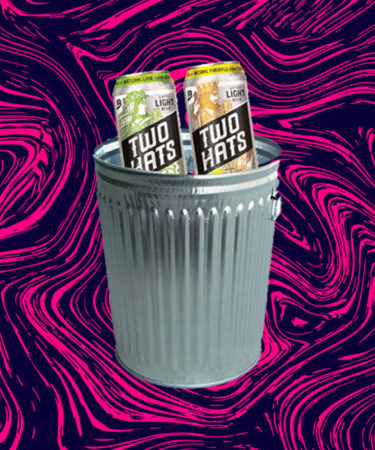On Monday, August 6, MillerCoors announced it is ending production of Two Hats, a millennial-facing light beer launched in February. The fruit-flavored brews proclaimed to be “good cheap beer.”
Apparently, people weren’t buying it. MillerCoors says it is pulling the plug because the company posted declines in volume and profit.
Two Hats’ early demise shows the frantic nature of big companies trying to capture younger audiences. In creating a line of fruit-flavored light beers at bargain prices, it was targeting a market that doesn’t exist. Young people already have cheap beer. They don’t need it to be “good.” Two Hats wasn’t competing with “good beer,” it was only competing with Coors Light.
MillerCoors is better off trying to convince us Coors Light is good — which we hear is kind of a priority — rather than dumping resources into a brand no one is looking for.
Heineken Announces $3 Billion Stake in China’s Biggest Beer Company
Last Friday, Heineken announced a partnership with China Resources Enterprise (CRE) and China Resource Beer (CR Beer), maker of Snow, the world’s best-selling beer. It acquired a 40 percent stake in the partnership for a cool $3.1 billion, making quite the entrance into China, the largest beer market in the world.
If combining the world’s second-largest brewer (Heineken) with the largest beer company in China sounds scary to you, you’re not wrong. As CNBC reports, both Heineken, which currently sells Heineken, Tiger, Sol, Anchor, and Hainan brands in China, and CR Beer require antitrust approval from China. But the deal is expected to be official by the end of the year.
My gut reaction is admittedly “[expletives],” but maybe this isn’t all bad. Netherlands-based Heineken investing in Chinese beer, and vice versa, also demonstrates beer’s increasing market value in China. As the category expands, targeting China’s growing middle class, this mega-partnership also sets the table for local craft brewers. If Heineken’s investment helps grow the beer category overall in China, then perhaps it is an example of a rising tide lifting all ships.
Molson Coors Joins With Canadian Cannabis Company
Just in time for recreational marijuana sales becoming legal in Canada (expected date: September 30, 2018), Molson Coors Canada announced a joint venture with HEXO, a recreational cannabis company, with which it will make non-alcoholic, cannabis-infused drinks for the Canadian market.
It’s another notch in Molson Coors’ non-alc belt, with other brands like Clearly Kombucha and Bhaki tea joining the multinational brewer’s portfolio. It also follows the growing trend toward non-alcoholic alternatives to buttress suffering beer brands, and other corporate titans betting big on cannabis. Heineken-owned Lagunitas’ Hi-Fi Hops, a cannabis drink brewed with marijuana, launched July 30. In June, Toronto startup Province Brands launched the world’s first “beer” brewed using the actual cannabis plant.
Right now, all the big brands are putting resources toward diversification. By being at the front lines of cannabis beverages, Molson Coors is cornering a market before it exists, but unlike the Two Hats mishap, it’s one people are actually looking for. I don’t need light beer with fruit “flavors,” but when cannabis drinks become available (and legal) in the U.S., I’m trying it.
